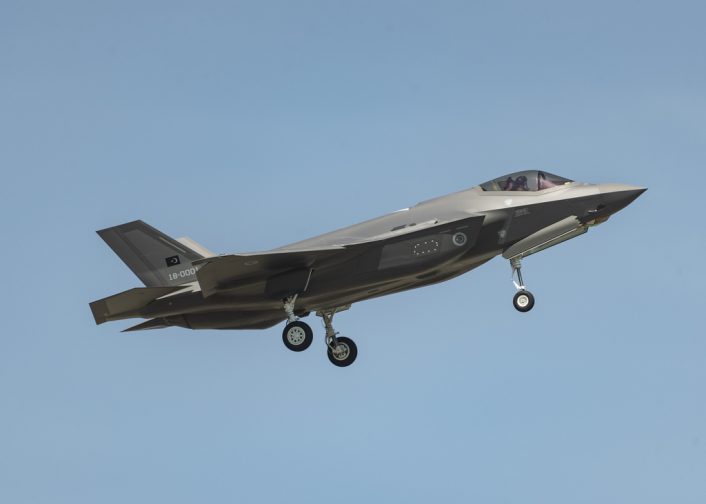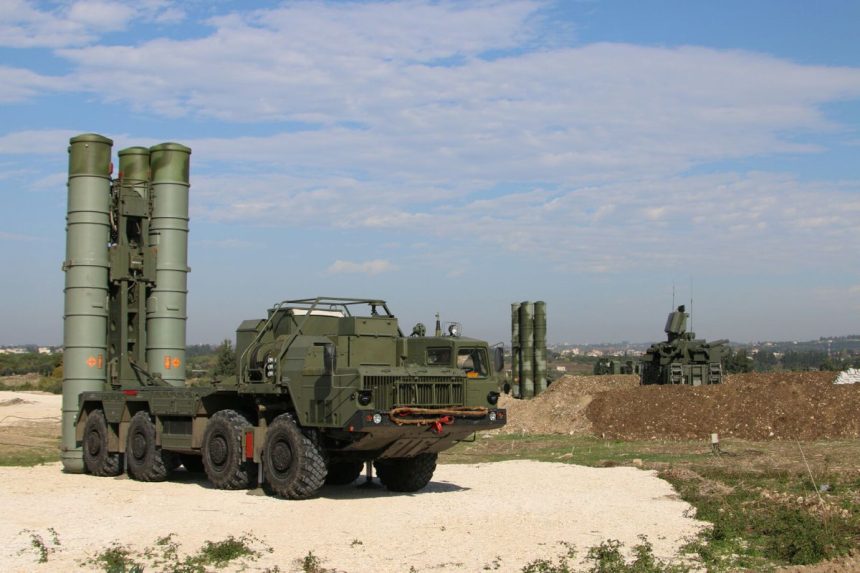Turkish MoD stated that S-400 training has already started, even though it may jeopardize the F-35 deal.
Turkish military personnel arrived in Russia to begin training on the S-400 Triumf (NATO designation SA-21 Growler) after the controversial deal that led to the suspension of F-35 deliveries to and all program-related activities.
“We have sent our specialists to Russia to undergo a training course on the use of the S-400 systems, the course will start today and last several months”, said Turkish Defence Minister Hulusi Akar after Washington allegedly issued Ankara a two-week ultimatum, even if the reports about this ultimatum have been denied by Turkish Foreign Minister. According to various news outlets, by the end of the first week of June, Turkey must cancel the S-400 deal with Russia and instead buy US made Patriot missiles or face removal from F-35 program, permanent halt of F-35 deliveries, US sanctions and possible consequences in NATO relations.
Turkey has 100 Lockheed Martin F-35As Lightning II on order. Ten Turkish companies are involved in the program, with a total Turkish investment of more than $1 billion, building parts of the jet’s fuselage and cockpit.

Here’s what we wrote last year when President Trump first blocked the Turkish F-35 sale:
The tough trade rhetoric from Washington creates frustration not only for Turkey, but also within the U.S. and potentially for other Joint Strike Fighter program participants. Pentagon correspondent to ForeignPolicy.com, Lara Seligman, wrote that, “Several key components of the jet are manufactured by Turkish companies, and the U.S. Defense Department estimates it will take two years to find and qualify new suppliers to replace any Turkish firms that are kicked out of the program. Meanwhile, the main European hub for the F-35’s engine repair and overhaul is in Eskisehir, in northwestern Turkey.” As a result of the engine repair hub being located in Eskisehir, Turkey, maintenance delays for other European users of the F-35 could emerge while other engine repair facility provisions are arranged.
Despite the risk of sanctions and economic losses, Turkey has no intention to drop out of the S-400 deal, as said by Turkish President Recep Tayyip Erdogan: “There is absolutely no question of [Turkey] taking a step back from the S-400s purchase. That is a done deal. There will be joint production of the S-500 after the S-400”.
Back in 2017, Moscow and Ankara signed an agreement for the purchase of S-400 systems. The deliveries are expected to begin in June, while the first systems should be operational by 2020. Turkish cooperation with Russia has been strongly criticized by the United States, which cited security concerns and the impossibility to integrate S-400s into NATO’s air defence systems. The Russian S-400 was designed to shoot down U.S. and allied aircraft at greater ranges and altitudes than older systems. As we already wrote:
The relatively new Russian-built S-400 “Triumf” Surface to Air Missile (SAM) system has been characterized as an “anti-stealth” air defense system that could specifically threaten the F-35A and its user nations should technology from the aircraft trickle back to Russia as they provide support to Turkey for their S-400 program.
Meanwhile, Turkish pilots are training at Luke Air Force Base with the first two F-35s delivered in 2018 and other two reportedly delivered in April 2019. Sources report that the first group of Turkish pilots completed the training program with the 63rd Fighter Squadron and a new group have begun entry-level training.









